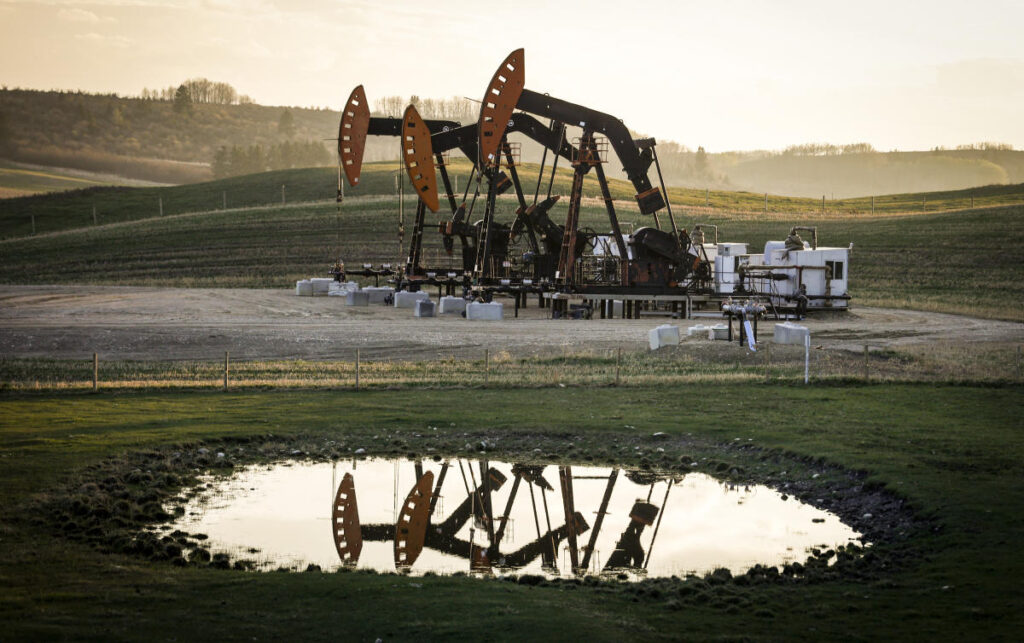In response to President-elect Donald Trump’s recent remarks regarding Canada’s trade relationship with the United States, Alberta Premier Danielle Smith provided a robust defense of the economic ties between Canada and the U.S. Trump had expressed his concerns on social media, questioning why the U.S. subsidizes Canada to the tune of over $100 million a year, and he suggested that Canadians should consider making Canada the 51st state to save on taxes and military protection. Smith did not engage with Trump’s tongue-in-cheek remarks about statehood but instead focused on explaining the trade dynamics between the two countries, highlighting the significant flow of raw materials from Alberta to the U.S.
Smith emphasized the critical role that Alberta plays in supplying raw materials such as oil, gas, minerals, and agricultural products to American industries. She noted that Alberta sends approximately 4.3 million barrels of oil and gas to the U.S. daily, asserting that these resources are vital for American companies to create substantial wealth. According to her account, American firms depend heavily on affordable Canadian raw materials to manufacture goods and generate trillions of dollars in revenue, including salaries and jobs for American workers. This trade relationship forms a pillar of the U.S. economy, according to Smith, and any attempt to impose tariffs could significantly disrupt it.
The trade figures back up Smith’s statements, with Canada’s ambassador to Washington, Kirsten Hillman, reporting a trade deficit of $75 billion between the two countries last year. Hillman explained that the trade balance is influenced by the high prices of oil, which is a major component of what Canada exports to the U.S. Additionally, she highlighted the geographical disparities in their economies, noting that Canada is one-tenth the size of the U.S. Thus, a balanced trade arrangement—if viewed through the lens of per capita metrics—would mean that Canada, in relative terms, would need to purchase ten times more from the U.S. than what it sells, which complicates the narrative that Canada has an unfair trade advantage.
Moreover, it’s crucial to recognize that Canada is a vital supplier of various resources and materials to the U.S., including steel, aluminum, and uranium. Canada also provides 34 critical minerals and metals, which have garnered interest from the U.S. Department of Defense. This arrangement not only emphasizes the sheer volume of goods crossing the border—valued at nearly $3.6 billion Canadian dollars or $2.7 billion each day—but also demonstrates Canada’s importance as a trade partner in industries crucial for national security and economic stability.
Premier Smith’s assertion underscores the interconnectedness of the two economies, especially in the energy sector where Canada is a leading source for U.S. crude oil imports—accounting for about 60%—and electricity imports, at about 85%. This trade relationship is a testament to mutual reliance that both countries have on each other’s resources and products. Ontario Premier Doug Ford also echoed these sentiments, arguing against the impact of Trump’s proposed tariffs, calling them a potential “disaster” for U.S. stock markets and the economy at large.
In conclusion, Smith’s response highlights the complex and beneficial trade relationship between Canada and the U.S. Her comments reflect a pushback against Trump’s assertion of a trade deficit being a symptom of unfair subsidies while advocating for the recognition of Canada’s contributions to the U.S. economy. The interdependence between the provinces of Canada, such as Alberta, and their American counterparts is critical, suggesting that any punitive measures like tariffs could have unintended repercussions that would not only harm Canada but could destabilize the interconnected economies. This ongoing dialogue signifies the importance of cooperative economic policies that ensure both countries can leverage their strengths for mutual benefit.

